Resilience, Rights & Respectful Relationships
Wellbeing Update

Resilience, Rights & Respectful Relationships
Wellbeing Update
As well as teaching academic skills, schools also have a responsibility to explicitly teach and build the personal, social and emotional capabilities of our students. At Fairfield Primary School we adopt a whole school approach to supporting students’ wellbeing. We recognise the importance of positive student-teacher relationships. Evidence shows that students who feel cared for by people at their school are:
One way that teachers build positive relationships with their students is through the Resilience, Rights and Respectful Relationships Program, otherwise called “4 Rs.”
The RRRR program is taught weekly in classrooms as mandated by the Victorian Curriculum. The RRRR curriculum supports the development of students’ social, emotional and positive relationship skills.
There are eight topics in the RRRR curriculum.
|
|
While the topics covered in a Foundation, Grade 3 and Grade 6 classroom are the same, the curriculum allows students to expand their knowledge and understanding of each topic each year in an age-appropriate way.
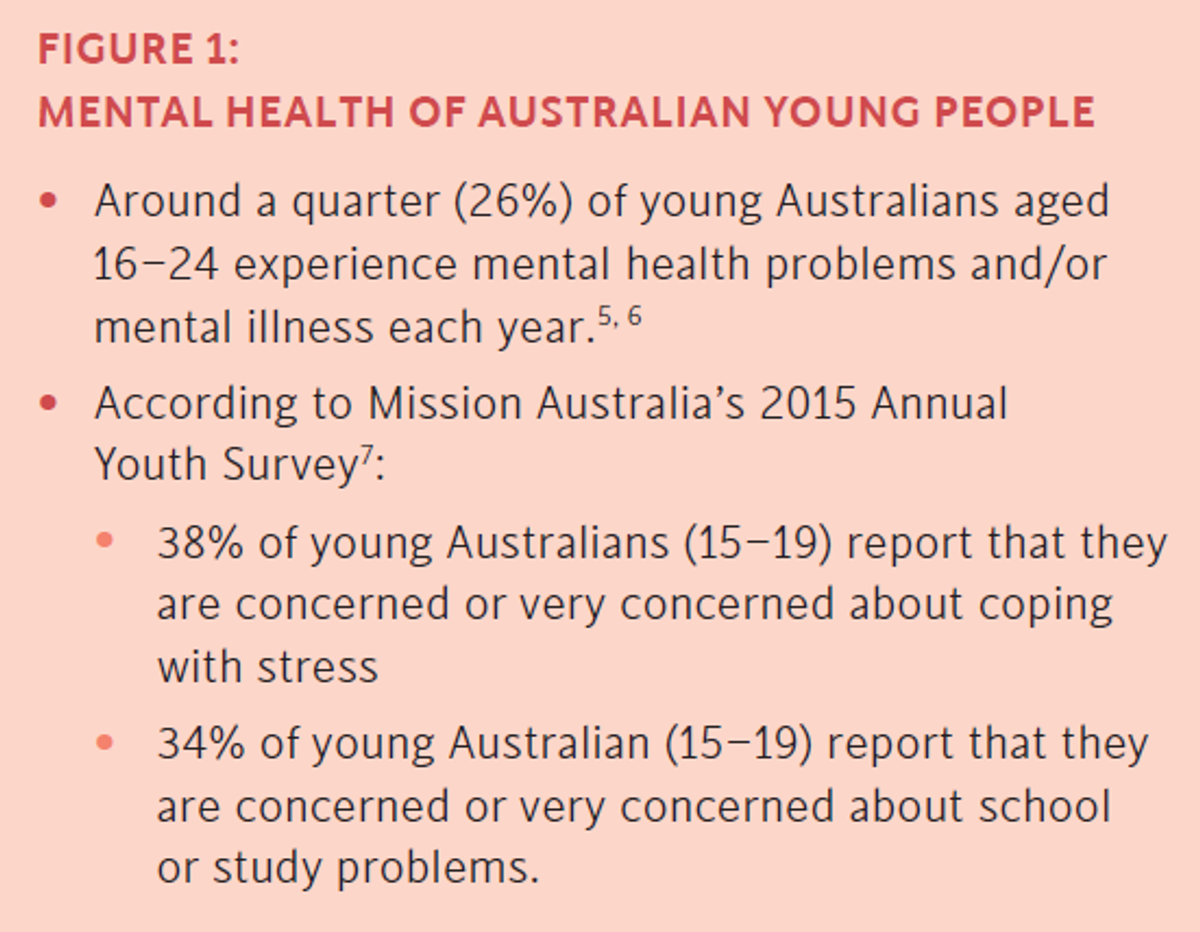
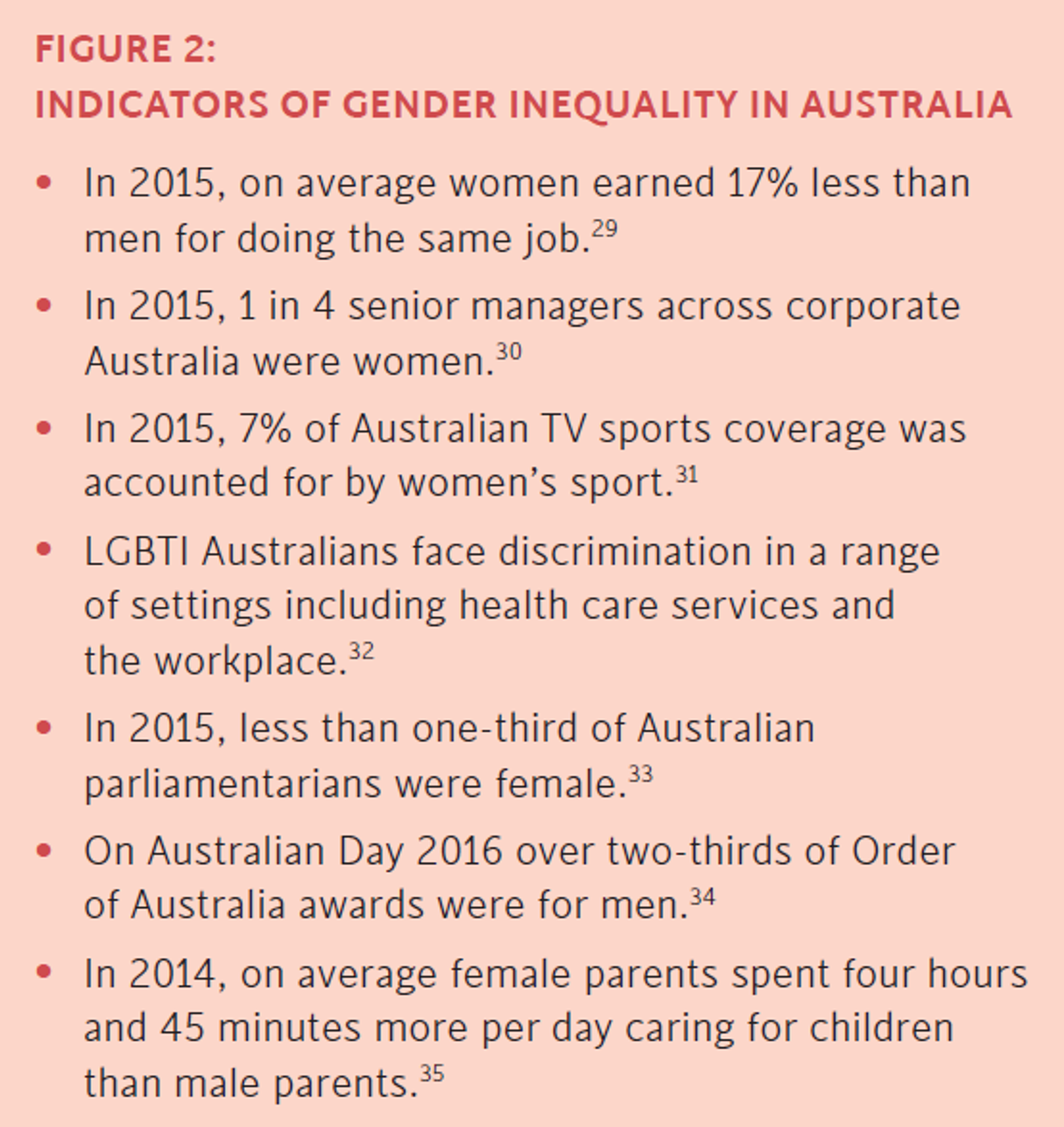
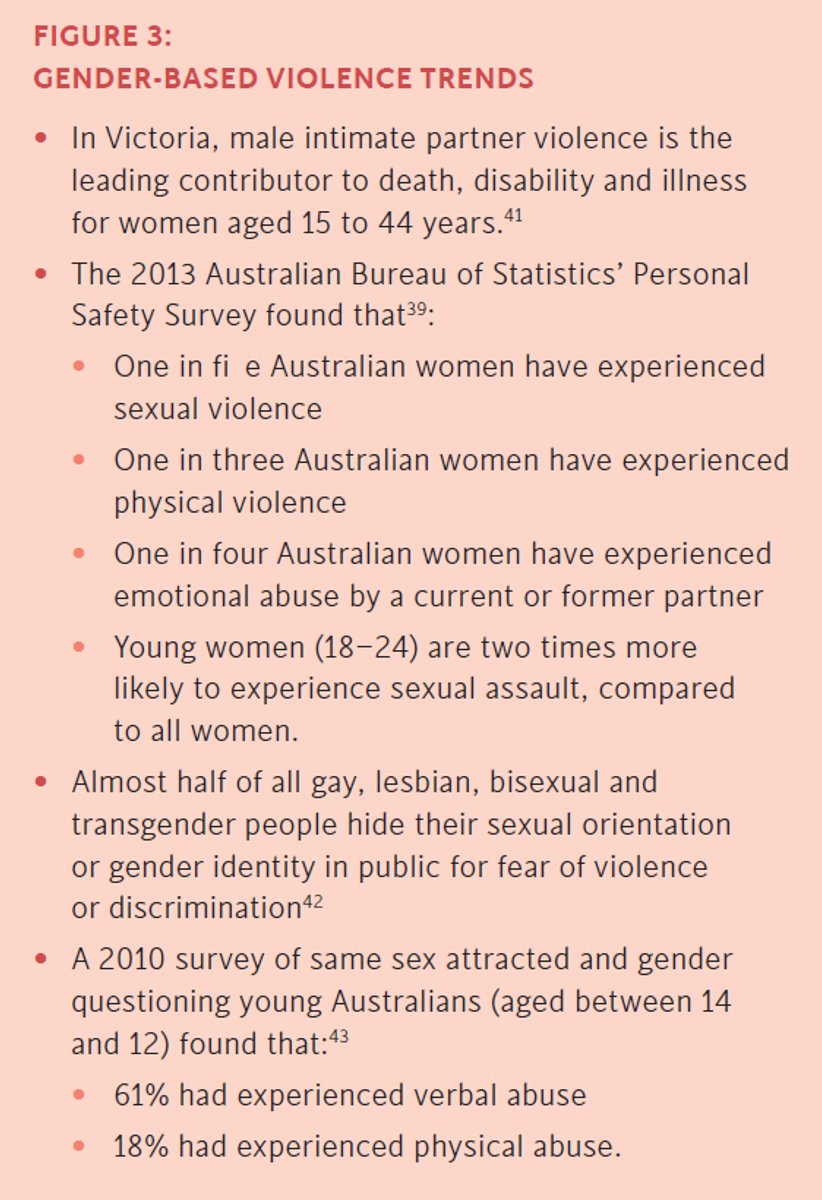



Topics 1 – 6 support students’ social and emotional learning, which is increasingly important as data shows that young people in Australia face a range of stressors and anxieties, and a high incidence of mental health problems. Positive social and emotional skills are also the building blocks young people need to create positive connections and friendships with others.
Topics 7 and 8 – Gender and Identity, and Positive Gender Relationships – support students to challenge stereotypes, celebrate diversity, set boundaries within relationships, and play an active role in the prevention of gender-based violence. These topics are often referred to together as ‘Respectful Relationships’. This focus is important because gender inequality and gender-based discrimination continue to have a profound effect on outcomes for Australians. As well as this, LGBTQIA+ people often face disproportionate discrimination, bullying and violence with negative implications for their health and wellbeing.
The Respectful Relationships topics work on building positive gender relationships from an early age as, research shows, children are well aware of gender norms and make efforts to fit within gendered expectations by the time they are in kindergarten.
Have a look at the two lesson plans from the Foundation and Grade 3/4 curriculum that teachers use in the classroom to support students’ understanding of fair play, respect and positive gender relationships.
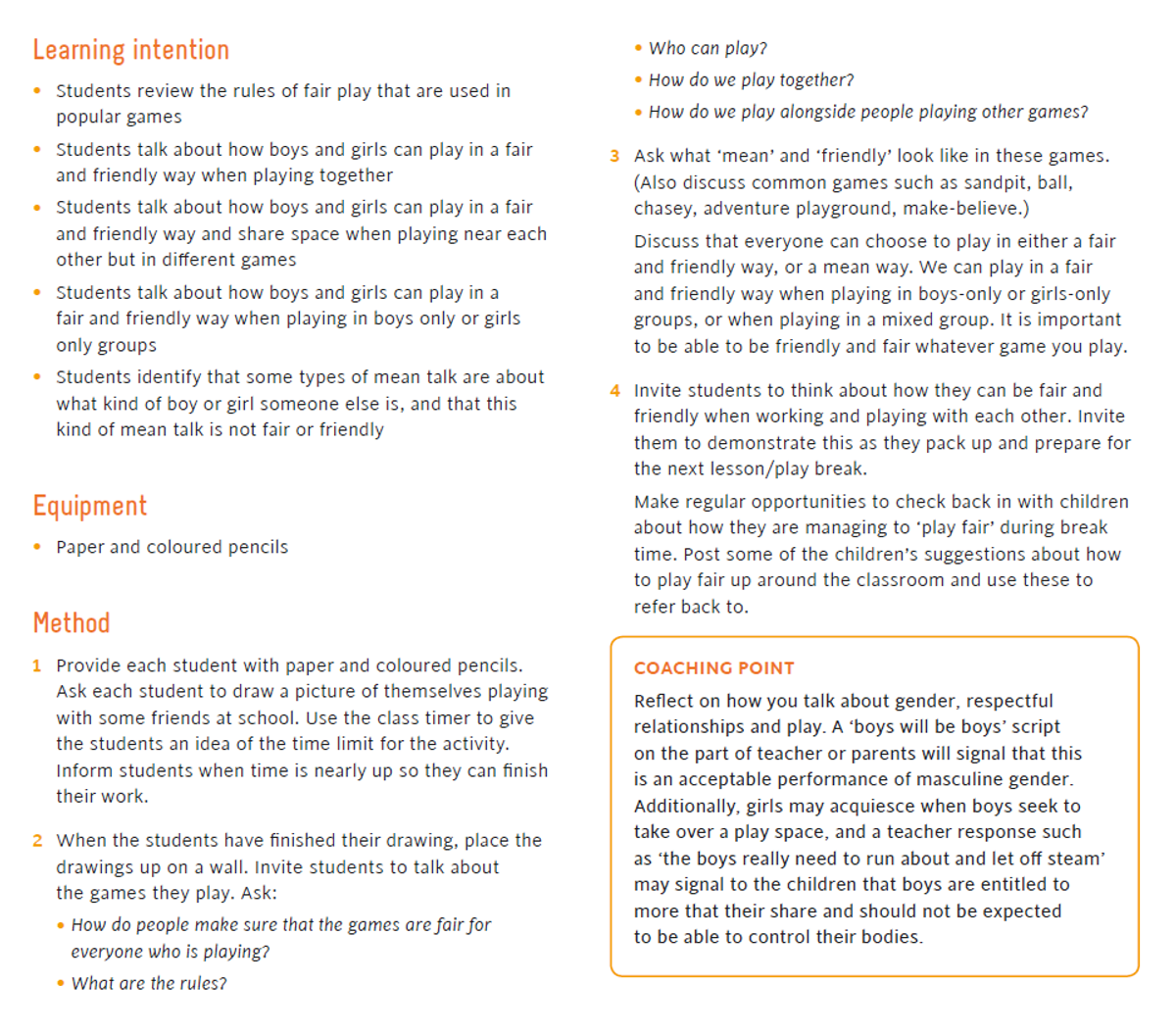
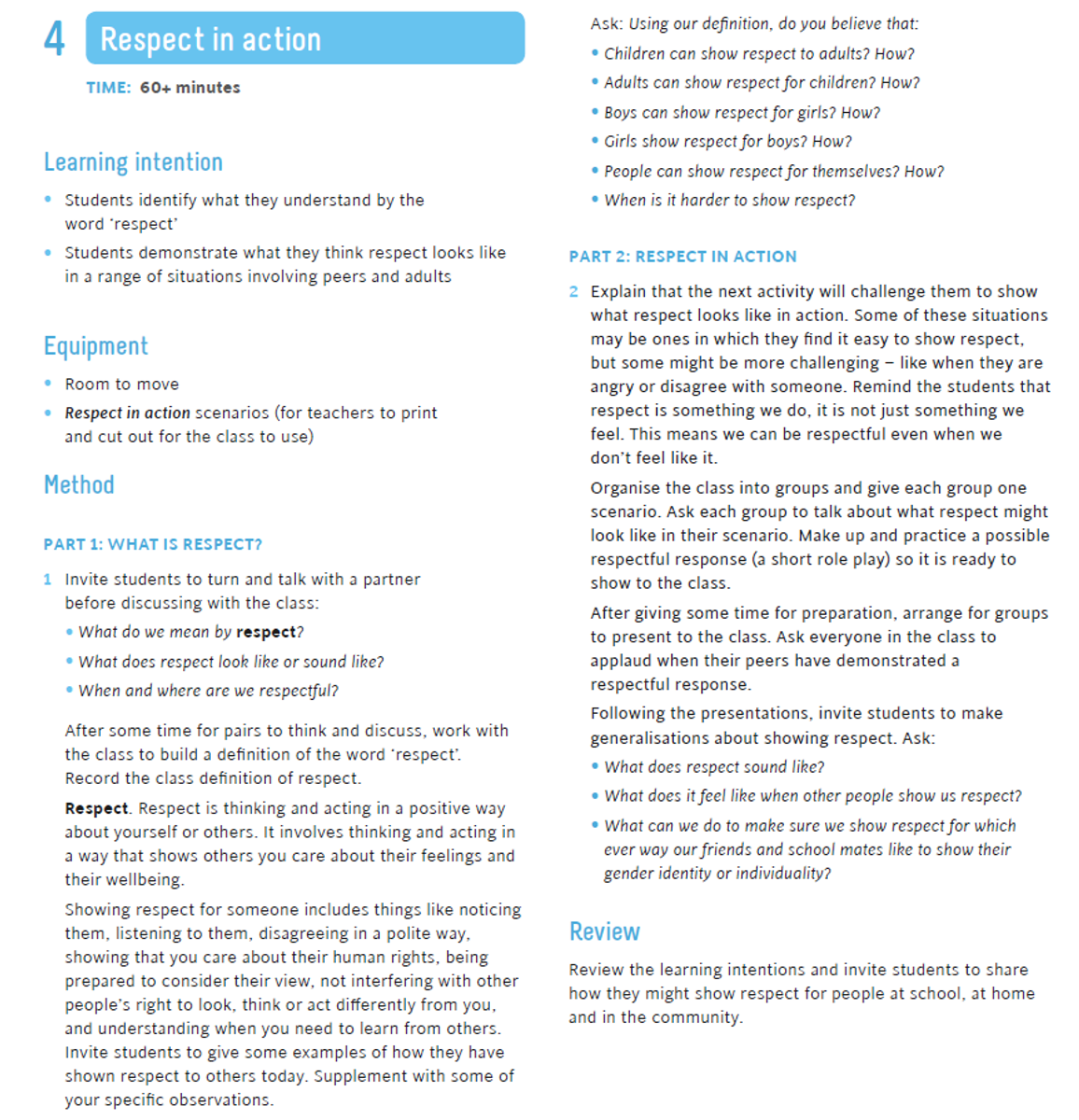


Attached is a comprehensive guide wellbeing activities that can be done at home, produced by the Department of Education.
Attached is a list strategies for helping to deal with strong emotions.
Here is a list of online resources for you and your child/ren:
Kids Helpline provides free 24-hour counselling services online, via email or phone for Years F-12. Tel: 1800 55 1800. They also have an interactive website designed to support young people in identifying emotions and causes of their emotions http://www.kidshelp.com.au/
Reach Out is an online service for young people that provides information, support and resources about mental health issues. http://au.reachout.com/
The Line is an online resource and forum for young people which focuses on relationships, gender, and healthy and respectful approaches for teens, parents and teachers. http://www.theline.org.au/respect
Headspace is the National Youth Mental Health Foundation providing early intervention mental health services for 12 to 25-year-olds. Young people can access face-to-face services through headspace centres or online through the ‘eheadspace’ counselling service. http://headspace.org.au/
Minus18 are working to create an Australia where all young people feel safe, empowered, and surrounded by people who support them. They have resources for parents/carers, and hold events to support the lives of young LGBTQIA+ people. https://www.minus18.org.au/
There are lots of misconceptions around the teaching of RRRR, in particular Respectful Relationships. The myths and facts below should help alleviate any worry you or someone you know has about the Respectful Relationships curriculum.
~ Grace Clark, Foundation – Year 2 Wellbeing Leading Teacher